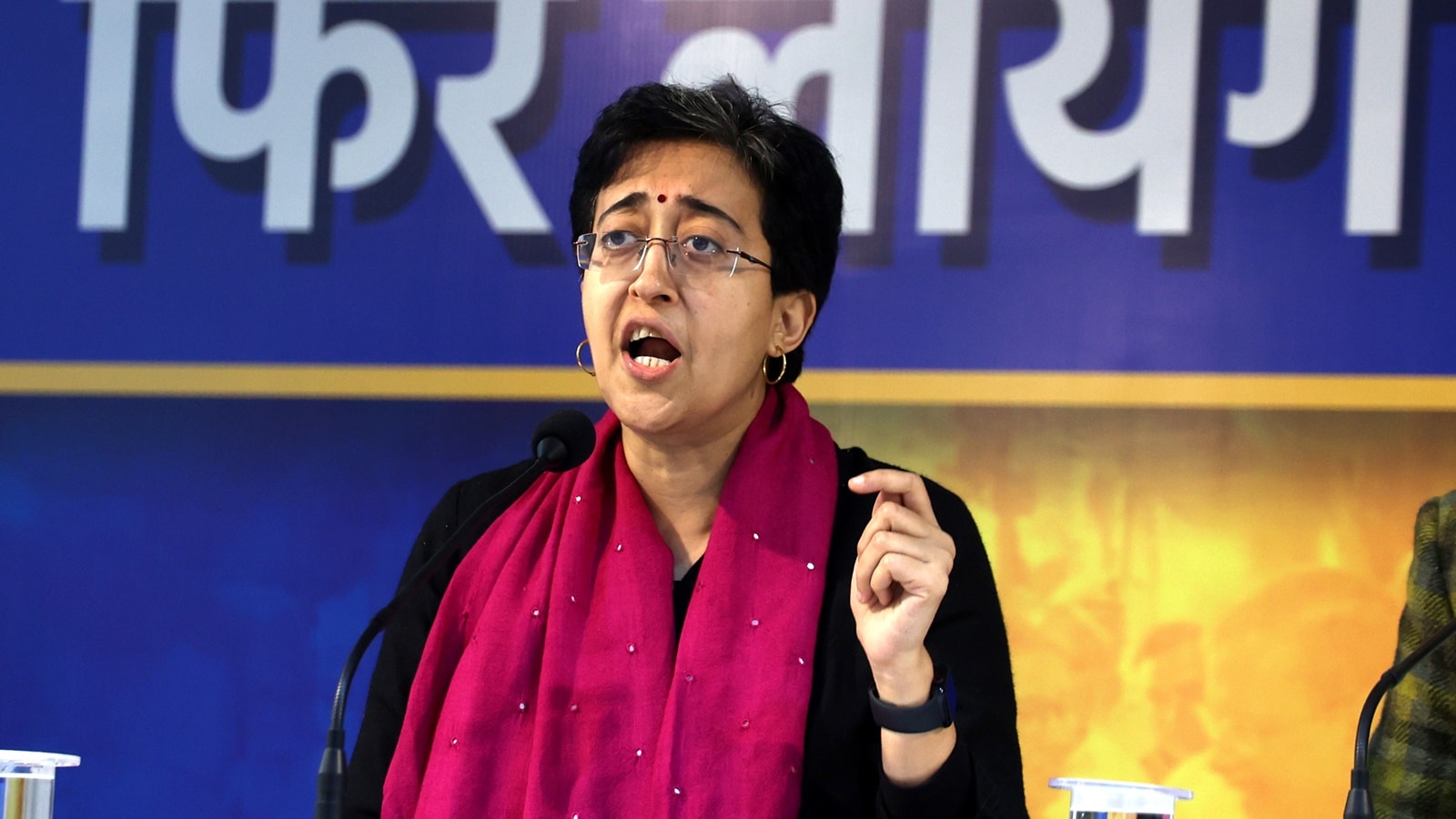 |
|
The eve of the Delhi Assembly elections witnessed a dramatic turn of events as Delhi Police filed a case against Chief Minister Atishi, accusing her of violating the Model Code of Conduct (MCC). The case, registered under sections 223 of the Bharatiya Nyaya Sanhita (disobedience to orders) and 126 of the Representation of the People Act (prohibition of public meetings within 48 hours of polling), stems from an incident on Monday night in the Govindpuri area. According to police reports, Atishi, along with a large group of people and vehicles, allegedly refused to vacate the area despite police instructions, creating a crowd and disrupting traffic flow. This action, the police claim, constituted a clear violation of the MCC, which restricts campaigning activities in the final days before the elections. The police account details a scene of significant disruption, highlighting the alleged refusal of Atishi and her supporters to comply with lawful instructions. This incident underscores the high-stakes nature of the Delhi elections and the heightened scrutiny placed upon political activities as the voting day approaches.
Atishi vehemently denied the allegations, portraying the police action as a politically motivated attempt to undermine her campaign. She claimed that the police targeted two AAP workers who were merely documenting MCC violations by others, suggesting a deliberate attempt to suppress free speech and impartial reporting. Her counter-narrative accuses the Delhi Police of selectively enforcing the MCC, favoring one political party over another. She pointed to alleged violations by Ramesh Bidhuri's family, the BJP candidate from Kalkaji, accusing the Election Commission of India (ECI) of inaction against these reported offenses. This accusation casts doubt on the fairness and impartiality of the election process, raising questions about whether the ECI is effectively monitoring and enforcing the MCC for all political parties involved. Atishi's claims are significant because they directly challenge the official narrative provided by the Delhi Police and suggest a deliberate bias within the enforcement of electoral rules.
The Election Commission of India (ECI), facing criticism from Atishi, responded with a statement emphasizing its commitment to fair elections and its efforts to maintain impartiality. The ECI highlighted the large number of officials involved in managing the electoral process and the robustness of the established legal framework. This response attempts to deflect accusations of bias and reiterate the ECI's dedication to a fair and transparent electoral process, but Atishi's claims and the accompanying social media posts remain potent criticisms of the perceived bias in the process. The ECI's statement underscores the complexity of managing a large-scale election, particularly amidst accusations of selective enforcement and political maneuvering. It also reflects the high level of scrutiny placed upon the electoral body during periods of political tension, particularly in the final stages before the polls.
Adding to the complexity of the situation, the Delhi Police reported another case involving two AAP workers, Ashmit and Sagar Mehta, accused of assaulting a police head constable while obstructing his duties during an investigation related to the earlier incident. This development further complicates the narrative and raises questions about the level of cooperation and adherence to the law demonstrated by all parties involved. The assault allegations, if proven, represent a separate and potentially serious offense, unrelated to the MCC violations. The investigation into this incident is ongoing, and the outcome will further shape the understanding of events surrounding the pre-election period. The overlap of these events, however, raises significant concerns regarding the integrity of the electoral process and the potential for political influence on law enforcement.
The conflicting accounts and allegations presented by Atishi and the Delhi Police highlight the intensely competitive and politically charged atmosphere surrounding the Delhi Assembly elections. The timeline of events, the conflicting narratives, and the allegations of partisan behavior by both law enforcement and election officials raise serious questions about the fairness and transparency of the electoral process in Delhi. The coming days will be crucial in determining how these allegations are resolved and what implications they will have for the overall integrity of the election. The potential impact on voter confidence, particularly given the proximity to the election date, is significant. The independent investigation of these allegations is critical to ensuring public trust in the democratic process and to safeguard the integrity of the election results.
Source: Day before Delhi polls, CM Atishi booked for violating prohibitory orders; hits out at EC
